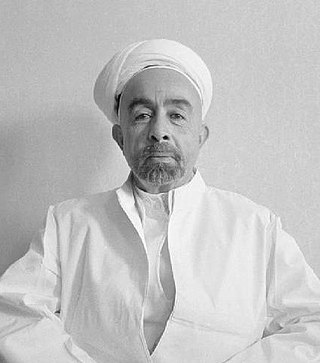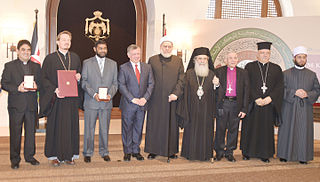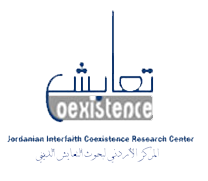Related Research Articles

Amman is the capital and the largest city of Jordan, and the country's economic, political, and cultural center. With a population of four million as of 2021, Amman is Jordan's primate city and is the largest city in the Levant region, the fifth-largest city in the Arab world, and the tenth-largest metropolitan area in the Middle East.

Abdullah II bin Al-Hussein is King of Jordan, having ascended the throne on 7 February 1999. He is a member of the Hashemite, who have been the reigning royal family of Jordan since 1921, and is considered a 41st-generation direct descendant of the Islamic prophet Muhammad.

Abdullah I bin Al-Hussein was the ruler of Jordan from 11 April 1921 until his assassination in 1951. He was the Emir of Transjordan, a British protectorate, until 25 May 1946, after which he was king of an independent Jordan. As a member of the Hashemite dynasty, the royal family of Jordan since 1921, Abdullah was a 38th-generation direct descendant of Muhammad.

Noor Al Hussein is an American-born Jordanian philanthropist and activist who is the fourth wife and widow of King Hussein of Jordan. She was Queen of Jordan from their marriage on June 15, 1978, until Hussein's death on February 7, 1999.

Talal bin Abdullah was King of Jordan from the assassination of his father, King Abdullah I, on 20 July 1951 until his forced abdication on 11 August 1952. As a member of the Hashemite dynasty, the royal family of Jordan since 1921, Talal was a 39th-generation direct descendant of Muhammad.

Interfaith dialogue, also known as interreligious dialogue, refers to cooperative, constructive, and positive interaction between people of different religious traditions and/or spiritual or humanistic beliefs, at both the individual and institutional levels.

Rania Al Abdullah is Queen of Jordan as the wife of King Abdullah II. Rania's domestic activities include education, youth, environmental, and health initiatives. Globally, she has campaigned for education and cross-cultural dialogue. She has authored three children's books: The Sandwich Swap, The King's Gift, and Enduring Beauty.

Prince Hassan bin Talal is a member of the Jordanian royal family who was previously Crown Prince from 1965 to 1999, being removed just three weeks before King Hussein's death. He is now 20th in line to succeed his nephew King Abdullah II.

Hussein bin Abdullah is Crown Prince of Jordan as the eldest son of King Abdullah II and Queen Rania. He is a member of the Hashemite dynasty, the royal family of Jordan since 1921, and is considered to be a 42nd-generation direct descendant of the Islamic prophet Muhammad.

Jordan contains one of the oldest Christian communities in the world, their presence dating back to the crucifixion of Jesus Christ early in the 1st century AD. Christians today make up about 3% of the population. There are approximately 250,000-400,000 Jordanian Christians in a country of almost 10 million, down from 20% in 1930, but their absolute numbers have increased. This is the result of high immigration rate of Muslims into Jordan, high emigration rates of Christians, and high birth rates for Muslims.

Jordan, officially the Hashemite Kingdom of Jordan, is a country in the Southern Levant region of West Asia. Jordan is bordered by Syria to the north, Iraq to the east, Saudi Arabia to the south, and Israel and the occupied Palestinian territories to the west. The Jordan River, flowing into the Dead Sea, is located along the country's western border within the Jordan Rift Valley. Jordan has a small coastline along the Red Sea in its southwest, separated by the Gulf of Aqaba from Egypt. Amman is the country's capital and largest city, as well as the most populous city in the Levant.
The Amman Message is a statement calling for tolerance and unity in the Muslim world that was issued on 9 November 2004 by King Abdullah II bin Al-Hussein of Jordan, and his advisor Sheikh Izz-Eddine Al-Tamimi. The message aims to "clarify to the modern world the true nature of Islam and the nature of true Islam," and to specify which actions do and do not represent the religion.
The Constitution provides for the freedom to practice the rights of one's religion and faith in accordance with the customs that are observed in the kingdom, unless they violate public order or morality. The state religion is Islam. The Government prohibits conversion from Islam and proselytization of Muslims.

Prince Ghazi bin Muhammad is a Jordanian prince and a professor of philosophy. He is the son of Prince Muhammad bin Talal of Jordan and his first wife, Princess Firyal. He is a grandson of King Talal of Jordan and thus a first cousin of King Abdullah II and sixteenth in the line of succession to the Jordanian throne. He is well known for his religious initiatives, about which a book was published in 2013.

World Interfaith Harmony Week is a UN resolution for a worldwide week of interfaith harmony proposed in 2010 by King Abdullah II and Prince Ghazi bin Muhammad of Jordan. The World Interfaith Harmony Week falls in the first week of February of every year and aims to promote harmony between all people regardless of their faith.

The Jordanian Interfaith Coexistence Research Center is a non-governmental organization for promoting peaceful religious coexistence based out of Amman, Jordan. It focuses on fostering interfaith dialogue on a grassroots level and creating interreligious harmony. The JICRC is currently run by its founder and director, Father Nabil Haddad.

Muhammad bin Abdul Karim Issa is a Saudi Arabian religious leader, Secretary General of the Muslim World League, President of the International Islamic Halal Organization, and former Saudi Minister of Justice.

Sayyid Ibraheem Khaleel Al Bukhari is founder and chairman of Ma'din Academy and adviser of World Interfaith Harmony Week. He is a sunni Islamic scholar, Joint Secretary of Samastha Kerala Jamiyyathul Ulama, General Secretary of Kerala Muslim Jamaat, a body of various Muslim organizations in Kerala and he is listed in The Muslim 500.

Hashemite custodianship refers to the Jordanian royal family's role in tending Muslim and Christian holy sites in the city of Jerusalem. The legacy traces back to 1924 when the Supreme Muslim Council, the highest Muslim body in charge of Muslim community affairs in Mandatory Palestine, chose Hussein bin Ali as custodian of Al-Aqsa. The custodianship became a Hashemite legacy administered by consecutive Jordanian kings.
References
- ↑ "Jordan's Syrian Refugees - January 24, 2014 - Religion & Ethics NewsWeekly - PBS". Religion & Ethics NewsWeekly. 24 January 2014. Retrieved 26 December 2014.
- ↑ "Center Profile". Archived from the original on 26 December 2014. Retrieved 26 December 2014.
- ↑ "Father Nabil Haddad". Archived from the original on 7 January 2014. Retrieved 24 February 2014.
- ↑ "World Interfaith Harmony Week » King Abdullah II". Archived from the original on 20 February 2014. Retrieved 24 February 2014.